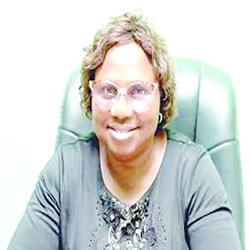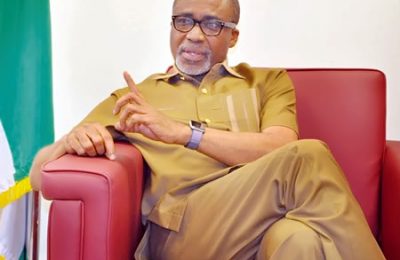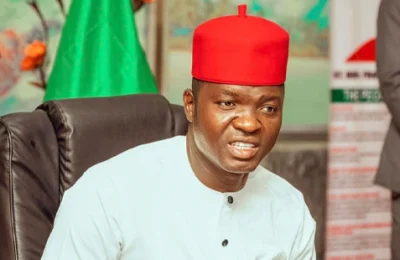Modupe Awosemusi, a legal practitioner, is the Director of Mediation in the Oyo State Ministry of Justice and an Associate of the Institute of Chartered Mediators and Conciliators in Nigeria. She is also a former coordinator of the Oyo State S3xual and Gender-Based Violence Response team, a multi-sectoral one-stop justice team, established by the Oyo State Government to respond to issues of gender-based violence. In this interview with YEJIDE GBENGA-OGUNDARE, she speaks on factors responsible for violence and the role of women among others. Excerpts:
What have you identified as factors responsible for high incidence of GBV in the society?
There are many factors contributing to high rise in the incidents of gender-based violence in our society; economic factor is very prominent among the factors responsible for these incidents. For example, if you look at what is happening in Nigeria, the rate of inflation, hardship and the economic mess we are in have actually contributed so much to the increase in incidence of GBV. How much will a man put on the table that would be enough to take care of the family? And if the woman decides to also add her weight and stay late at her place of business to make ends meet, by the time she gets home, she’s tired, she wants to cook and the man is already home and demanding for food; before you know it, aggression will be transferred, even to children and to spouses, anything can happen from that place and you begin to abuse each other physically, mentally and even abuse the children. Also, a man who cannot support the family financially as he used to do will put up a fight, abandon the family or chase the woman and the children away because he can’t cope financially, so there will be abandonment of family and abdication of responsibilities.

These days, we have marriage of convenience, there is no love at all, in this kind of situation where there is no love and people are just brought together by a matchmaker, in a little time, they start having issues and it leads to violence. There are also social factors; there is something we call anomie theory in social work which means a breakdown of social codes; so many want to survive at all cost and that is why you see a lot of Yahoo boys, a lot of people going into money rituals and most of these money rituals give conditions that lead to violence like rape, armed robbery and other vices that border on violence. Such people are already used to violence and it is not exempted in their marriage when they finally marry.
Also, we have religious factors; I will say it that what religion will do to those that do not personally know their God will be worse than what the devil himself is doing to them. When you are in a relationship that is threatening your life and a pastor or Imam tells you to pray, it is dangerous. We all know what happened to Osinachi and Yewande Arowolo, the Lagos banker. Even within Oyo State, there are various cases of spouses killing each other, these are avoidable deaths and when these things happen and you are told to keep praying because God will turn it around; keep praying, I tell you there are so many things God will not do for you because we can handle them by ourselves. Before you know what is happening, it will not be gender-based violence but murder and a criminal matter. We also have cultural factor which spreads the belief of we can’t go to court and remain friends, this stops women from reporting their spouses or family, even when they commit violence against them because they are told you can’t send your family to jail. And it keeps increasing because nothing is being done due to culture. Another major issue is blaming the survivor and stigmatising them, this encourages the culture of silence and the more you keep quiet, the more the perpetrators will continue. When some of these cases get to court, the survivors don’t come to court, so prosecutors can’t prove their case; there is no how you can prove a case without witnesses. It is impossible for the prosecutor to enter the witness box to give evidence. This empowers perpetrators because they know witnesses and victims won’t turn up so it is difficult to create deterrence when perpetrators get off. A lot of factors contribute to it; society, judicial system, traditional institutions, survivors and families, religious leaders, economic factors and a whole lot of other factors.
Do women have a role?

Women have a lot of roles. It starts from training, as we are training our girls, let us train our boys. Let’s not forget that the girls we are training and protecting are being trained to end up in a boy’s house later in life. And this is the boy that we are neglecting; this long-term neglect of boys is what is resulting to abusive relationships and incidence of terrible abuse from men that were never properly brought up by women. The first role is to train up the boys the same way we are training the girls, let them know there is no specially designed house chores for girls or boys; everyone has to be trained the same way. Secondly, we need to go back to the era where adults that aren’t your parents can correct you; as women, we should know that we are the salt of the world and when we see things going wrong, even with other children, let us correct them because untrained children will affect our children either now or in future.
Do religious and cultural beliefs of parties affect mediation in any way?
Religious and cultural beliefs do not affect our mediation or success therein in most cases. This is because mediation focuses on facilitating communication and negotiation between parties in conflict to help them reach a mutually acceptable resolution. It dwells on understanding each party’s perspective, fostering empathy and guiding them towards finding common ground without resorting to litigation. We, therefore, appeal to their senses of responsibilities and need for sacrifices in relationships, without which there can’t be peaceful co-existence. This is not to, however, say that we don’t have pockets of cases where religious and cultural beliefs affect the outcome of mediation.
What do you think are the biggest challenges in mediation?
The biggest challenges in mediation often revolve around overcoming communication barriers, managing emotions, addressing power imbalances, navigating cultural differences, and ensuring parties remain committed to the process. Additionally, reaching a consensus on contentious issues can be very challenging. In some cases, we have to adjourn to a later date to continue the session especially when tension rises in the process and as a mediator, you need to avoid further crisis in an already chaotic relationship.
As the Director of Mediation in the Oyo State Ministry of Justice, how will you access the figure of cases bordering on s3xual-based and domestic violence?
Sincerely speaking, the figure of cases of s3xual abuse reported at the mediation centre is very minimal as such cases are extremely criminal in nature and are in most cases reported and documented with the appropriate law enforcement agencies. However, the figure of cases of domestic violence is on the high side. It comes in form of spousal, child or children neglect, verbal abuse which actually leads to mental/emotional breakdown, forceful ejection from the matrimonial home, economic abuse, stalking, isolation from families, spousal battery, domestic violence between co-tenants, domestic violence between landlords and tenants, etc. In most cases, parties are more favourably disposed to resolving their issues through alternative dispute resolution in form of mediation and reconciliation, than going to court or reporting at the police station or NSCDC for criminal prosecution, taking into consideration how well we value peaceful relationships in this climate.
READ ALSO: Ondo guber: We’ll be transparent in distribution, inspection of sensitive materials — INEC







